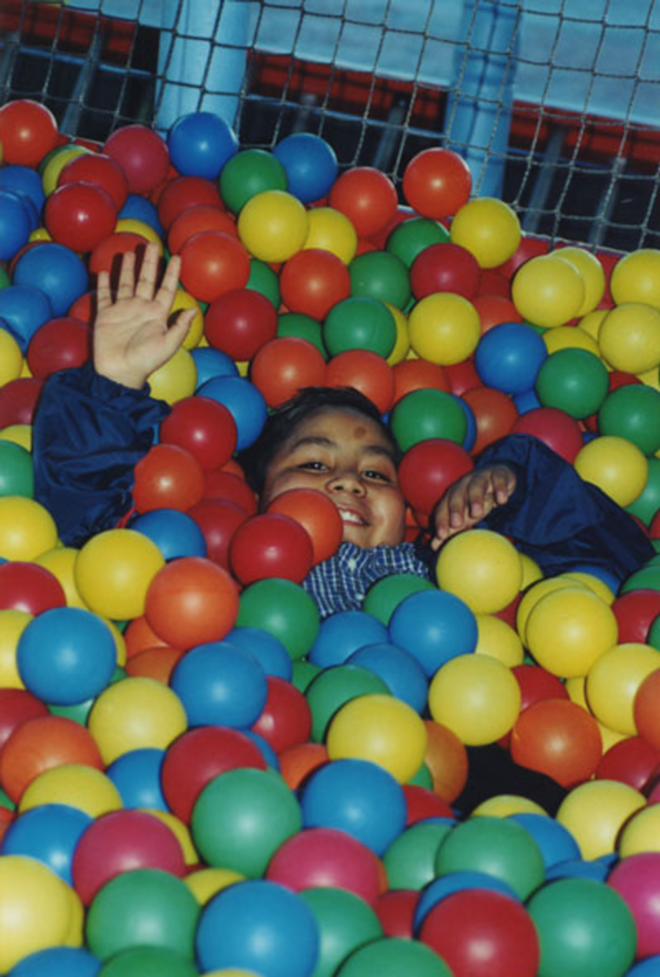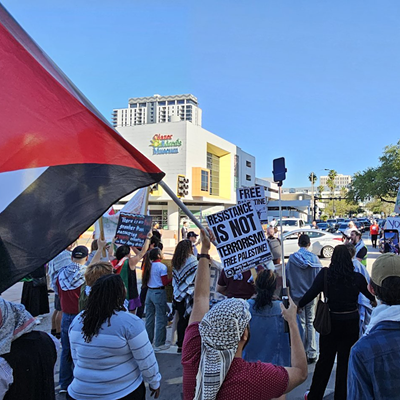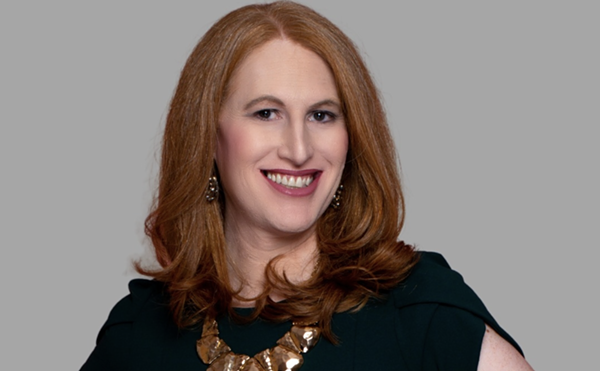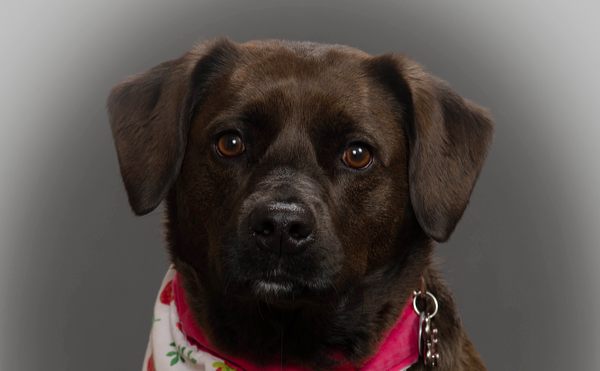As they got dressed in their second-floor room, Mael buttoning up a freshly ironed white shirt, he looked up at his mother. "Do you think I'll impress these people enough to bring our family here?" he asked. They went downstairs and turned the corner into the living room.
Nestor almost fell over, his little brother jumped on him so hard. The house's staff circled the reunited family, crying along with them. Elvi could barely breathe as she squeezed her husband and her daughter Susana. Felipe stared at his son — Mael didn't look like a sick kid anymore, the scars and bruises were gone. A few weeks earlier, McDonald House director Donna Young had contacted Children's Wish Foundation International, Inc., and told them about Mael. "Mael's wish [is] to have his brother and sister visit," she wrote to Children's Wish. "And [we] feel that it would benefit him both mentally and physically."
The visit was only supposed to last a month, but Young didn't want Nestor and Susana just sitting around the house, so she enrolled them in school. Soon, both of them were speaking English, and Mael was putting on weight. Nobody saw a reason for the family to go back to Oruro.
They lived at Ronald McDonald house, all five of them in one room, just as they had in Bolivia. Young and Coffin arranged for the family to get eyeglasses. The Ojedas celebrated Christmas together again that year — the kids were showered with presents from house and All Children's staffers. And Mael had his ninth birthday at McDonald's — it was his second cake in as many years. Felipe got a temporary green card and worked in the hospital's kitchen, even earning medical benefits that helped with Mael's care. Both he and Elvi helped around the house too, cleaning and landscaping, whatever they could do to repay Young and her staff.
After The St. Petersburg Times ran a profile on the family and the community's support, a man offered them an apartment behind his office, just a few blocks away from the hospital. The Ojedas moved out of the Ronald McDonald House on April 1, 2001. They had two plates, two cups, a teaspoon and a sugar bowl Mael had won playing Bingo. Chris Eaton, the man who gave them the apartment at a reduced rent, installed a new stove and refrigerator. Ronald McDonald House donated silverware and mattresses. The family settled into their version of the American life.
Mael wanted to go to school, wanted to become a pediatric hematologist — "Dr. B," he told Dr. Barbosa, "one day I'll come and work with you" — but he couldn't make it to class often enough. He was in and out of the hospital — a month at home, a month away. But every night that Mael was bedridden, Elvi slept by his side.
Mother and son would talk about Bolivia, about their faith, about Pokémon. Sometimes, they would compare beauty marks. They each had one on their chin, one on their lip and one on their palm. "Mom," he would say when they finished, "I'll never be far from you."
Mael was starting to get better, his bone marrow was actually producing its own platelets, when doctors found a donor for a transplant. But just weeks before the operation, tests revealed that his counts were going down again. And Dr. Barbosa discovered something else.
Mael had contracted hepatitis B, most likely from the ad hoc blood transfusions in Bolivia. A transplant would be too risky; Mael would have to undergo more chemotherapy.
His family, however, was beginning to thrive. Susana, 9, had become fluent in English, as had Nestor, 15, who had started his freshman year at Lakewood High School. Felipe, the time limit having run out on his temporary green card, had found a job in construction. In early May 2002, Felipe and Elvi put a down payment on a small house in north St. Petersburg.
A week later, Elvi was in Mael's hospital room. He was watching an African wildlife show on Animal Planet. A family of wildebeests had to cross a croc-filled river; they waited on the banks, figuring out what to do. Finally, one broke from the pack and waded in. One crocodile jumped the wildebeest. Then two more crocs came, then all of them.
"This is nasty," Elvi said to her son. "Why would crocodiles do this?"
The other wildebeests started crossing the river unabated as Mael looked up at his mother.
"Mommy," he said, "this is normal. Usually one of the family has to die so the rest can survive. The leader has to die for the good of the family."















